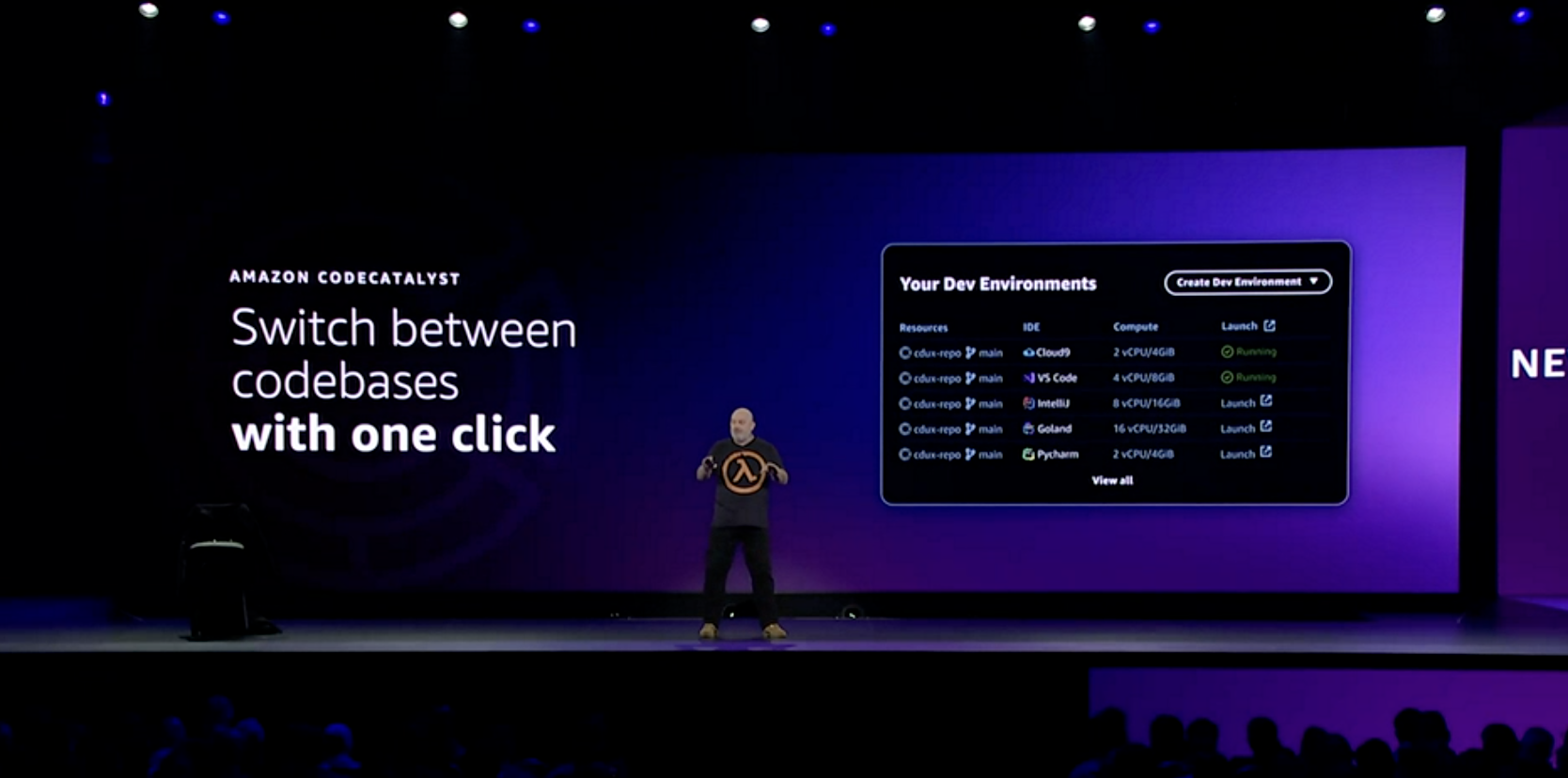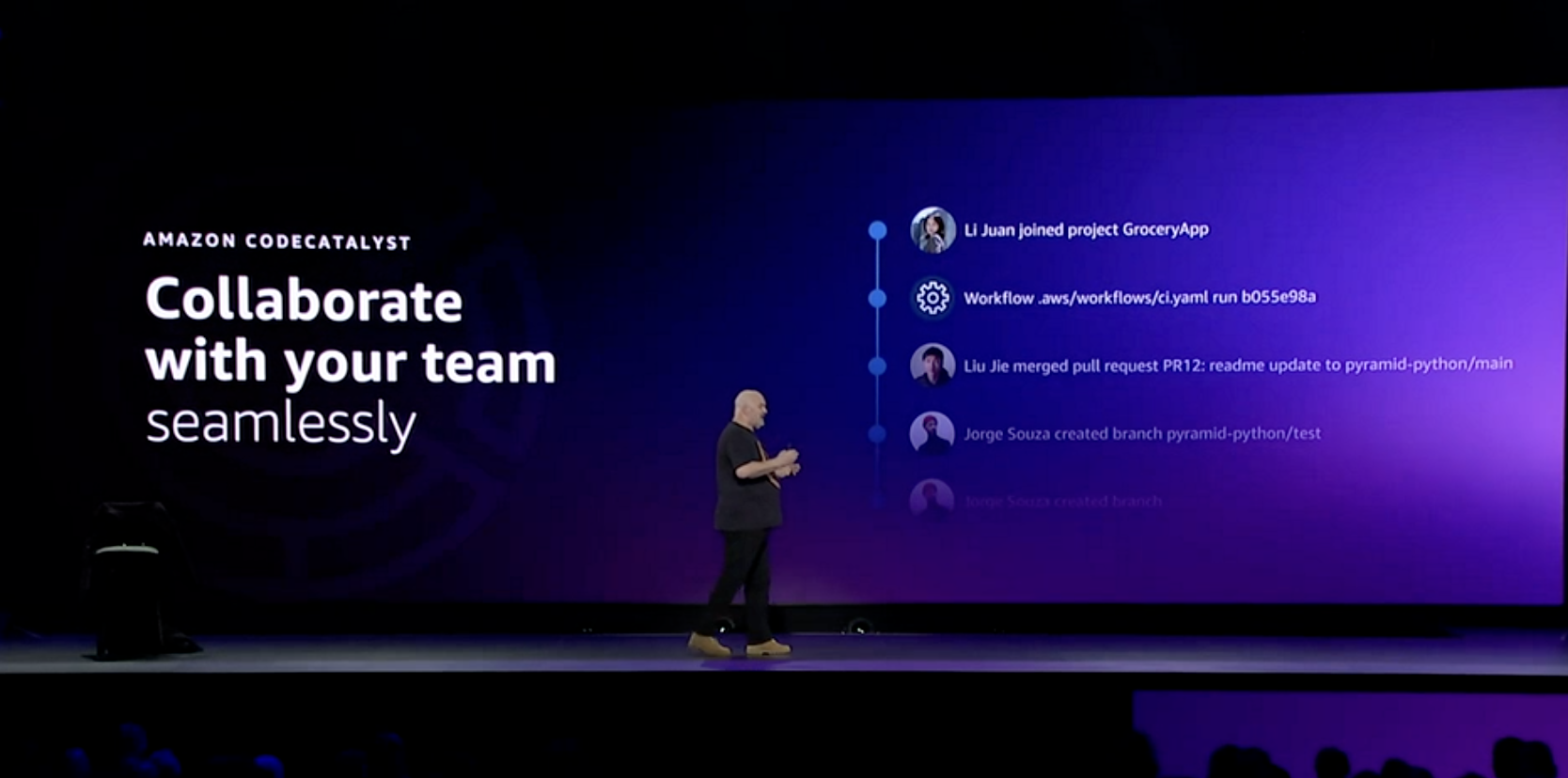During a keynote at re:Invent 2022 today, Amazon announced CodeCatalyst, a service designed to take away the heavy lifting of working across different codebases, tools and environments to build apps. Based on the concept of blueprints, CodeCatalyst — currently in preview — provides a “single place” developers can use to create an app on Amazon Web Services (AWS), Amazon CTO Werner Vogels said onstage.
“CodeCatalyst makes it very easy for you to switch between [different app development] environments” while creating an app, Vogels said. “You can populate a project with code and dependencies and you can use your favorite [integrated development environment].”
It’s true that, with the widespread shift to digital begun during the pandemic, app developers are facing increased pressure from clients to build faster. Disparate, disorganized tools appear to be getting in the way. According to a 2022 survey of developers and IT professionals by Reveal, 36% cited issues with project management within the digital workplace as one of their top challenges.

Image Credits: AWS
The aforementioned blueprints allow developers using CodeCatalyst to set up an app project’s scaffolding in addition to the resources needed to support the app’s delivery and deployment. CodeCatalyst’s on-demand, cloud-based dev environments and build infrastructure aim to make it easier for developers and developer teams to manage issues, trace changes across code commits and pull requests, and automate build and release pipelines, Vogels said.
“It’s all about moving fast so that you can focus on building the code, and not spend too much time on all the issues around it,” he added.
As Amazon elaborates in a blog post, the resources that a CodeCatalyst blueprint creates for a project include a source code repository with initial sample code and AWS service configuration or an external Git repository. The blueprint can optionally add an issue tracker (e.g. Jira) as well as other integrated tooling like dashboards to surface a feed of project activities (e.g. test reporting) and unified search across users, issues, code and other project resources.
At launch, AWS customers can choose from blueprints with Typescript, Python, Java, .NET and Javascript for languages and React, Angular and Vue frameworks, Amazon says, with more to come in the future. Regarding the build and release pipeline created by CodeCatalyst, Amazon notes that they’re configurable and can leverage on-demand compute or pre-provisioned builds, including a choice of machine sizes, and that developers can incorporate built-in or third-party build actions or a service such as GitHub Actions.

Image Credits: AWS
CodeCatalyst’s project resources and integrated dev tools make it so that a developer can press “deploy” and get sample code running, Vogels stressed. Collaboration becomes ostensibly easier with the service, too, thanks to an email-based invitation system that allows devs to start working on a project with just an email address, he asserted.
“Amazon CodeCatalyst takes away all the heavy lifting [of app dev] — it has all the tools you need to go from idea to production much faster,” Vogels said.
CodeCatalyst is available for free starting today on the free AWS tier. No word on whether that pricing might change once the service graduates to general availability.
Amazon CodeCatalyst provides blueprints for collaborative app development by Kyle Wiggers originally published on TechCrunch






